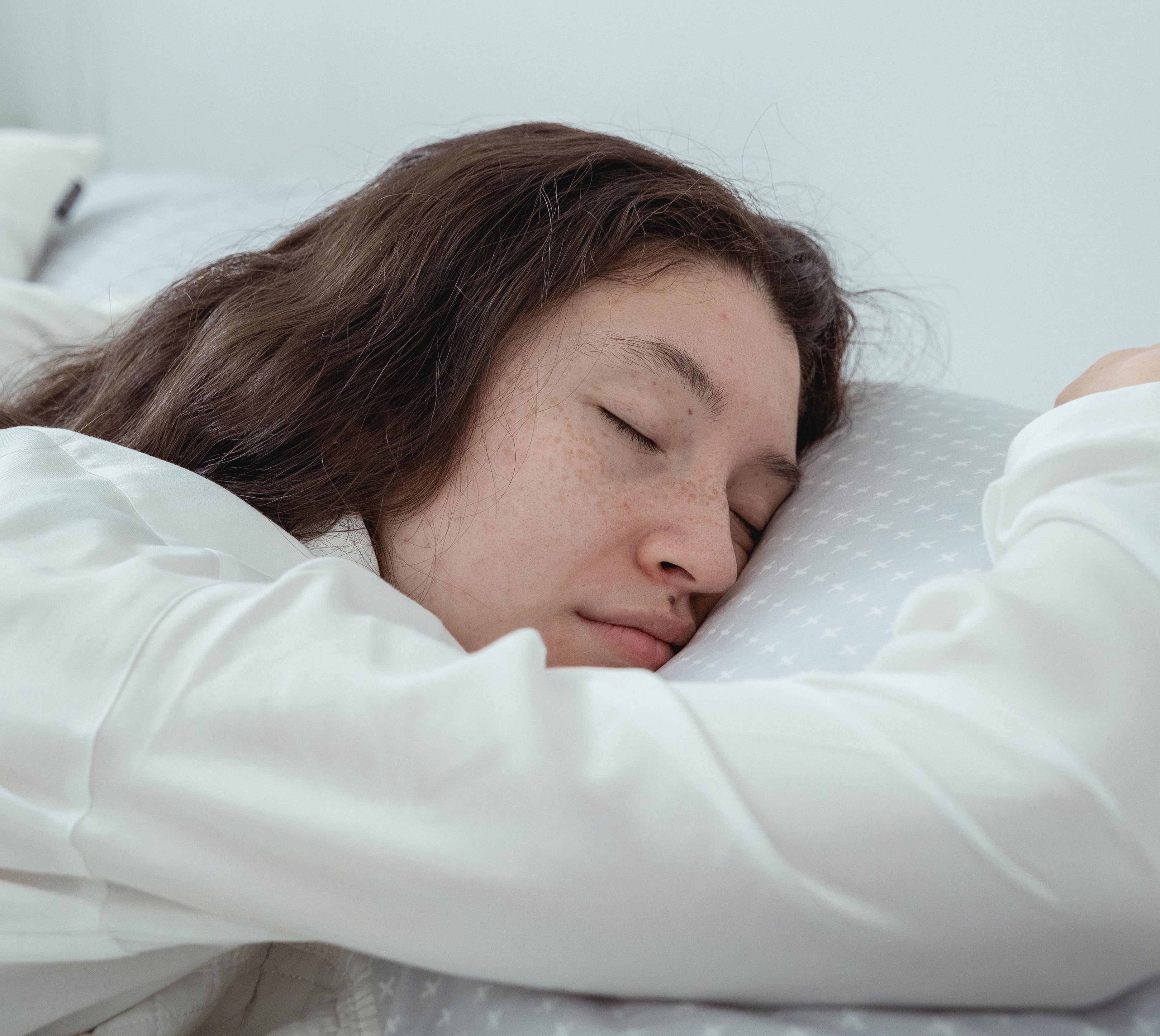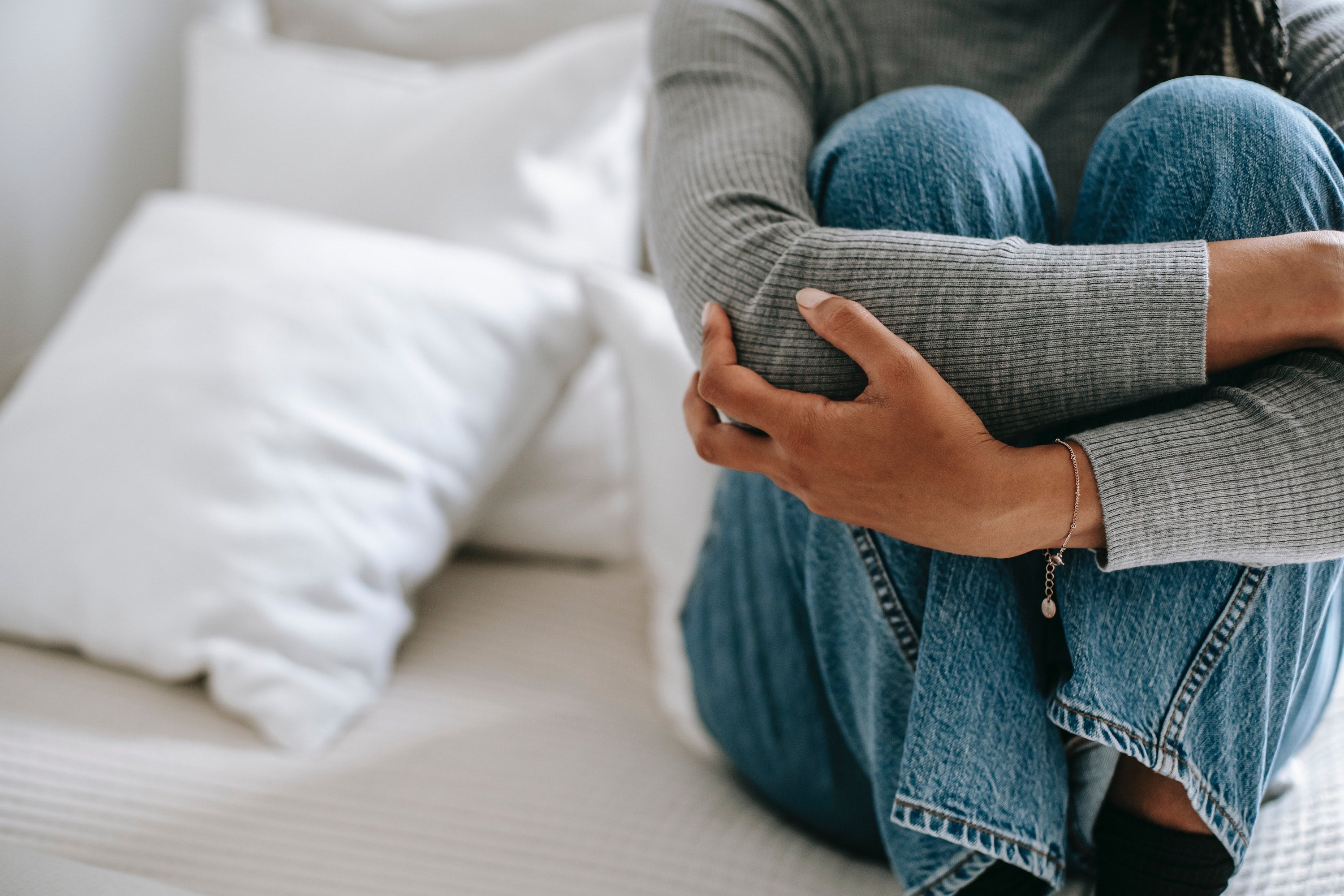How to Manage High Functioning Anxiety
Edited by Dr. Min An, PharmD, MS., Northeastern University of Pharmacy and University of Maryland School of Pharmacy.
Bace delivers pharmacist-designed CBD and cannabinoid products to your door. We believe that all supplements should start from a grounded place - science. We take the best of what we know from research, and pair it with clean processes and minimal ingredient formulas to provide you with products that give you more control and agency over your health.
If it feels like everyone around you has anxiety, you're probably right. About 1 in 5 adults in the US suffer from anxiety, and about 31% of adults will struggle with anxiety at some point in their lives.
Despite this, many cases go undiagnosed. One of the reasons for this discrepancy is because individuals with high functioning anxiety may not seem like they are struggling at all on the outside.
But what is high functioning anxiety, and how is it different than regular anxiety disorders? Furthermore, how should you manage your symptoms if you realize you fall into this category?
Keep reading to find out.
[box]
Summary
- What it means to have high functioning anxiety
- The difference between high functioning anxiety and an anxiety disorder
- The signs of high functioning anxiety
- When to seek help for high functioning anxiety
- How to mange high functioning anxiety (with resources)
[/box]
What is High Functioning Anxiety
According to the National Alliance on Mental Illness (NAMI), anxiety disorders are the most common mental health disorder in the United States. Currently, more than 40 million adults in the country—19% of the adult population—struggle with anxiety.
In addition to the adult population, about 7% of all children between the ages of 3 and 17 experience issues with anxiety.That number is said to increase each year.
Moreover, most people with anxiety develop symptoms of the disorder before they turn 21.
Generally speaking, anxiety is the body’s natural response to stress. However, it’s not necessarily the same as feeling stressed out. It’s more like the body’s reaction to potential threats and dangers to our well-being as a means of survival.
Therefore, all human beings experience anxiety. Without it, we wouldn’t react or be alert to potential dangers.
When these anxious feelings crop up frequently and for any given reason, lingering with no real resolution, then you know you’re crossing into anxiety disorder territory. They also tend to worsen over time.
For some people, the anxiety is debilitating and unbearable, like having a heavy weight on your chest or having an unrelenting fear that leaves you frozen. It’s also something that can cause you to call out of work or cancel plans with friends, even if there’s a part of you that still wants to show up.
Additionally, many people who experience anxiety attacks report feeling as if they’re having a heart attack or even dying.
So what does it mean to have high functioning anxiety in comparison to the more commonly known anxiety symptoms?
The Difference between High Functioning Anxiety and an Anxiety Disorder
High-functioning anxiety is best understood as a mild form of an anxiety disorder. While individuals with high-functioning anxiety feel the same symptoms as those with an anxiety disorder, many people go undiagnosed because they appear on the outside to be functioning so well.
An anxiety disorder is characterized with the same symptoms of high-functioning anxiety, except with an increased disruption in one’s daily life and an inability to complete regular daily tasks.
The types of disruptions they experience depend on the type of anxiety disorder, but the level of disruption is significant enough to impair them from completing daily tasks.
But just because people with high-functioning anxiety don’t experience major disruptions to their daily life doesn’t mean that the anxiety isn’t damaging.
Symptoms of long term anxiety like raised cortisol levels, anxiety and panic attacks, muscle tension, increased blood pressure, sleep disturbances, are all damaging to one’s health over a long period of time, and can increase your risk of heart disease, IBS, and a weakened immune system.
That’s why it’s so important to manage your anxiety, despite what you may perceive as its positive effects of your productivity and achievement.
The Signs of High Functioning Anxiety
As we know, when someone has high functioning anxiety, they tend to perform better than reasonably well in the various aspects of their life. This is because the anxiety itself is what fuels that performance.
However, there are two faces to high functioning anxiety, which present themselves in both positive and negative symptoms.
In regards to the positive symptoms—or seemingly positive symptoms—a person with high functioning anxiety would exhibit the following signs:
- An outgoing personality
- Punctual
- Proactive planning
- Extremely organized and detail-oriented
- Very high-achieving
- Very active
- Very helpful and passionate
- Loyal in relationships
- Appears to be cool, calm, and collectec
In regards to the negative symptoms, most of the characteristics are internal, although there are a few distinct external ones. These negative signs and symptoms are as follows:
- People-pleasing from fear of letting others down
- Nervous habits such as lip or nail biting, playing with hair, cracking knuckles, etc.
- Being overly punctual, as in arriving at appointments too early and losing time in your day because of it
- Periods of procrastination followed by periods of cramming work or studies
- Constant overthinking
- The need for constant reassurance
- Avoiding eye contact
- Constant rumination (dwelling on the negatives, such as past mistakes or "what if" scenarios)
- The need to stay busy, resulting in the inability to say no
- Insomnia
- Appearing to be stoic or hard to read by others
- The inability to be present in the moment due to expecting the worst to happen in any situation
- Mental and physical fatigue
People with high functioning anxiety are often described as being overachievers. Many of them are unaware that their need to achieve at such high levels is due to anxiety at all, as they may just think of themselves as perfectionists to a fault.
When to seek help for High Functioning Anxiety
If anxiety is negatively interrupting your day-to-day life, you may want to consider seeking professional help. This can feel out of the ordinary and even uncomfortable, since people living with anxiety are used to solving problems on their own. If you’re feeling any of the below sentiments, know you’re not alone.
- Afraid of being perceived as a failure because you can't handle everything on your own
- Concerned that the quality of your work performance will suffer since you won't be attending to everything you usually are.
- Worried that the people who depend on you will not be able to take care of themselves
It can feel difficult to even admit the need to seek help when you’re struggling with high-functioning anxiety. It’s important to remember that you can only help those around you and perform at the level you’ve set for yourself once you take care of yourself first.
How to Manage High Functioning Anxiety
While doctors understand what causes a person to become anxiety ridden and what can be done to treat the mental disorder as a whole, there is still very little research on the subject of high functioning anxiety.
If you’ve been struggling with anxiety in any capacity, the first thing you want to do is seek out a trusted mental health professional for help and to get a proper diagnosis.
Anxiety disorders are typically treated with cognitive-behavioral therapy and in some cases, medications.
In addition to getting professional help, there are several other things you can do to manage your high functioning anxiety, including:
- Practicing mindfulness via free youtube videos, or paid apps like Headspace or Calm
- Make lifestyle changes, such as limiting your daily caffeine intake, maintaining a healthy diet, getting regular exercise, etc.
- Change up your nighttime routine to ensure you get on a better sleep schedule by turning off your phone, listening to sleep music, or trying sleep hypnosis.
- Try actively addressing your thought patterns so you can control them and keep them as positive as possible.
- Try journaling - writing out how you are feeling can actually help your mind process complex emotions easier
- Consider supplements, like CBD or other natural herbs that can help you manage the physiological symptoms of anxiety
- Find coping strategies for any nervous habits, like deep breathing exercises.
Of course, it’s easier said than done. Anxiety is caused my many different things, and addressing it will need a holistic approach. By taking it one step at a time, you can start to identify what your triggers are, ways to manage them, and eventually your anxiety will begin to subside.
Even if you're excelling in other parts of your life, it’s important to take the time to check in with yourself and make sure that you’re taking care of your mind and body because life is meant to be enjoyed, not overanalyzed.
If you’re interested in more information on modern health and wellness, check out the rest of our journal.






